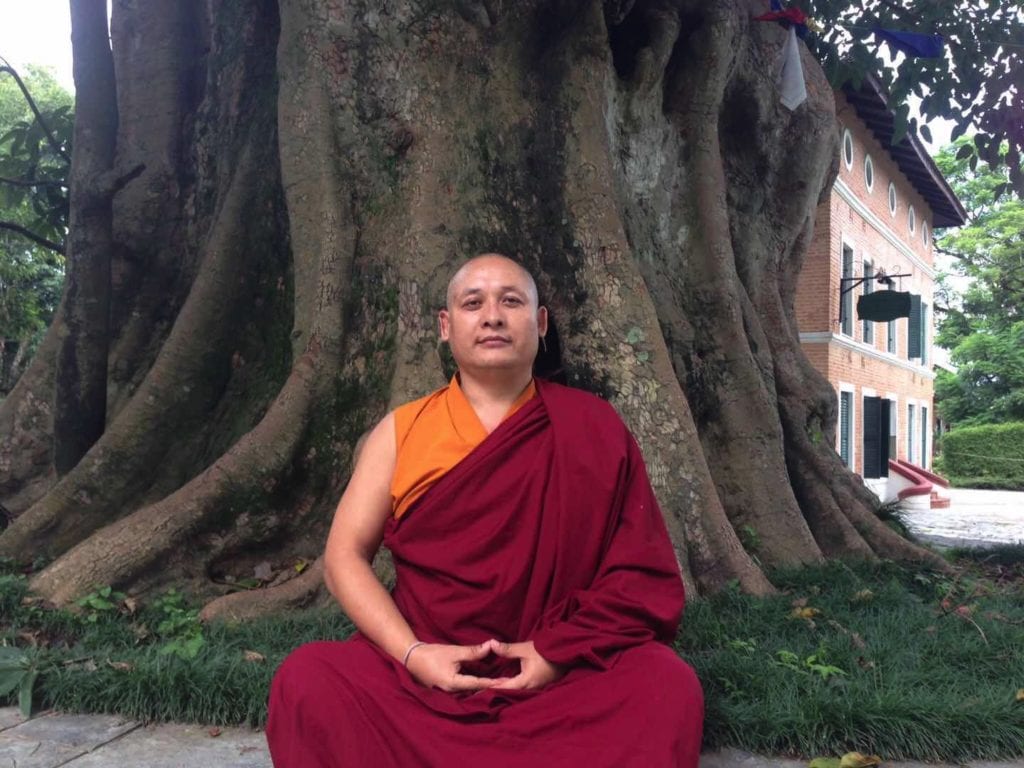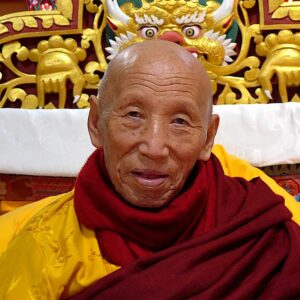Check yourself!
How do we become authentic Buddhist practitioners? In this short audio clip from a teaching in São Paulo, Brazil, Khenpo Gyaltsen gives us clear advice. Khenpo says that many of us might say, “oh, of course, I believe in cause and effect!” But we need to really examine carefully. How strong is that belief? He says each one of us needs to remember to “check yourself.”
This talk is in English with audio translation into Portuguese.
Khenpo gives the example of observing a person practicing beneath the sacred bodhi tree in Bodh Gaya, the very site of the Buddha’s enlightenment. The practitioner seemed to be sitting in meditation, yet at the same time he was slapping and killing mosquitoes. 
At first, this might not seem like an important observation, but does that seem consistent with Buddhist ethics and a belief in karma cause and effect?
Check Yourself: Your Own Behavior
Here, Khenpo suggests that we examine this type of behavior and we each need to focus on our own behavior. We may call ourselves Buddhist practitioners, but do we act like we truly believe in karma and its results? Here the mosquito can be a reminder of the correct path. How pure is our belief?
Do we really practice what we say we believe? Just because we meditate, we do not automatically eliminate all faults. We need to acknowledge that and keep observing our own conduct. We need to keep improving our conduct otherwise we are cheating ourselves.
Khenpo gives a personal example. He says that in his role as a teacher, he sometimes becomes angry when students don’t do well on exams. But he has learned to look internally where he sees his own anger. At the point when he examines it, the anger automatically reduces. Khenpos and monks don’t lose their emotions because of their degrees or their robes. We all need to practice. So, like this, we can check ourselves and observe our own faults.
Check Yourself: See the Faults
If we check and see our own faults, then that is great progress! That shows we are doing a good job. As practitioners, we need to be brave. We notice our faults and then we know where we need to improve. If we don’t see any faults, we may not be a very good practitioner and we’re ignoring something.
But we don’t get sad, depressed, or beat ourselves up. Instead, we notice and then resolve to improve. After all, we are not yet fully enlightened Buddhas. Everybody has faults until they are fully enlightened.
Khenpo asks us to take this advice to heart. By remembering to regularly do this simple self-reflection, we can then become more authentic practitioners.










Responses